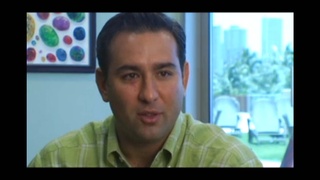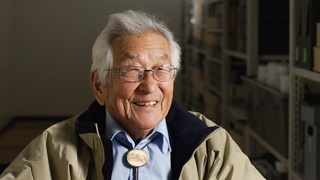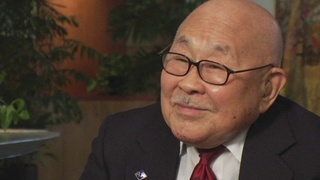Interviews
Luckiest Issei
My father is just like one of the Issei, work hard, and be honest. And everything keep clean. And obey to order. So I think Mr. Cotton liked my father's working habits...? Not habits... ethics. So once my father felt Mr. Cotton's kindness, he believed him like a god, I guess. And also, Mrs. Cotton teaching him everything, high society's manners. So my father, when I was a kid, my father was very strict about table manners, how to eat with a fork and knife, how to drink soup, how to eat and cut meat.
After you guys growing up, and maybe they want back to USA or foreign student to America. That time, I don't want you guys to get poor feeling from the white student, so you should know the manners, etiquette. That was my teacher's, what my father taught us. That was all learned from Mrs. Cotton. So overall, my father was really luckiest Issei, I guess.
Date: January 31, 2012
Location: California, US
Interviewer: John Esaki, Yoko Nishimura
Contributed by: Watase Media Arts Center, Japanese American National Museum
Explore More Videos

Learning Japanese at school and at home with family
(b.1951) Co-founder and managing director of San Jose Taiko.






School life in Japan (Japanese)
(1928 - 2008) Drafted into both the Japanese Imperial Army and the U.S. Army.


Working tirelessly after the war (Japanese)
(1928 - 2008) Drafted into both the Japanese Imperial Army and the U.S. Army.



Defining "Nikkei"
(1941-2018) Japanese Canadian photojournalist and activist

Feeling prejudice while looking for jobs
(1919 - 2015) Nisei who served in World War II with the 442nd Regimental Combat Team

Invited to teach at Harvard by his boss
(1919 - 2015) Nisei who served in World War II with the 442nd Regimental Combat Team

Advice from his mother
(1914–2015) Nisei YMCA and Japanese American community leader
